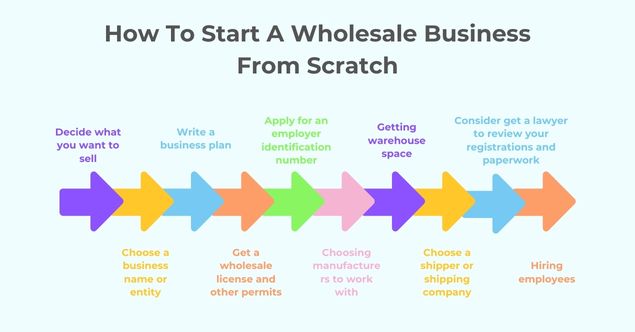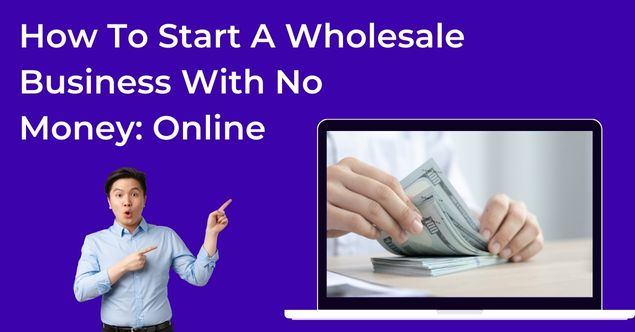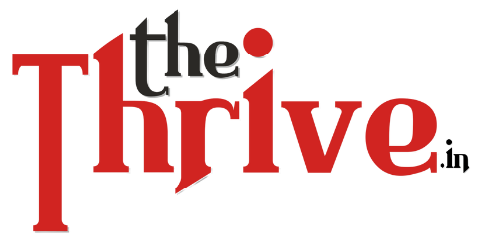Wholesaling is one of the most beneficial ways to make money – but where do you start? To start a wholesale business you need to know about pricing strategies, quality control, taxes, licenses and other regulations needed in order to make your business successful.
Starting your own wholesale business from scratch can become intimidating if you’ve never done it before. It’s time-consuming and if you don’t know what wholesale is and why you’re doing it, the business could fail before it gets there.
There are other entrepreneurs who have started the wholesale business model before in the market, so you can benefit from the wisdom they gleaned and learn from their successes and mistakes while doing so.
Wholesaling is the act of buying goods in bulk from a manufacturer or Distributorship at a discounted price and selling to a retailer for a good price, for them to repackage and in turn resell in smaller quantities at an even good price to consumers.
Wholesale businesses have the potential to become established in many industries and can offer lucrative opportunities. Starting a wholesale business typically requires an understanding of marketing, inventory management, accounting and more. Unfortunately, it often comes with its own set of challenges that can feel overwhelming to a first-time entrepreneur.
Regardless of experience or budget size, getting started as a wholesaler doesn't need to be difficult or expensive; you just need the right information and our guide will help you get there.
Discover how to start your own wholesale business from scratch and learn how you can get your venture up and running without another roadblock in sight!
Let's start from the basics: What is a wholesale business and who are wholesalers?
A wholesale business is a company that purchases partial or complete products from manufacturers for a huge amount. Whether the wholesaler is a broker or merchant, the business profits by reselling goods that originally came from a manufacturing inventory.
Wholesalers operate as a kind of middlemen between product manufacturers, retailers, or other businesses. They make a profit by buying products in high quantities at a discount and reselling them in smaller amounts at a higher price to individual retailers.
In simple word’s A wholesale business is a venture that sells in large quantities to another business that will resell the items or use them for manufacturing.
Types of Wholesalers
1) Merchant Wholesaler
Merchant wholesalers engage in purchasing huge quantities of products that they sell in smaller quantities for a slightly higher price to make a profit.
2) Broker
Brokers basically don’t own the products they’re selling; they are the intermediaries between wholesale operators and their customers.
3) Distributor
A manufacturer will reach out to wholesale managers to offer their products to them, creating wholesale deals tailored to individual cases.
What is the best wholesale business to start?
Some of the ideas for wholesale business
Furniture Business
Stationery Business
Agrochemical Business
Kitchen Utensils Business
Textile Business
Jewellery Business
Organic Food Business
Snack Distribution Business
Ayurveda Product
Plastic Product
Healthcare Products and Beauty
Building and Construction Items
Electrical Appliances
Example of Wholesale Business
Let us look at an example of a wholesale business:
Aman runs a wholesale business of soft drinks and supplies and delivers hundreds of crates per day to fast-food restaurants and hotels in his neighbourhood shop. Based on market demand, he puts bulk orders for cold beverages with their producer at a substantially reduced cost.
To accommodate customers' demand, all restaurants and hotels contact him to deliver a specific number of batches at a discounted price and he gets distribution.
These restaurants then provide soft drink bottles to their customers at a higher price. As a result, Aman and his network of retailers maintain a relationship and profit from their wholesale business.
The function of wholesaling:
Wholesaling products, wholesalers perform many functions, such as promotion, warehousing, transportation, financing, management and consulting, market intelligence, risk-taking, and many more.
Wholesalers have more excellent price control due to operating or warehousing expenses that fluctuate based on process efficiency, price of goods and services, and inventory turnover. They usually do not offer after-sales service or product support as they are not manufacturers and primarily sell competitive products.
What is Wholesale Distribution?
Based on the type of buyers you work with, you will need to determine what wholesaling distribution method applies to you. Basically, wholesale distributorship refers to the entire process from raw material sourcing to final sales. There are intermediate stages between the manufacturer and the eventual customers.
After the wholesaler obtains raw material, there may be assembly, modification, and repackaging of products. Wholesalers then turn to a retail or consumer market to sell the products.
If a wholesaler works with retailers, the entrepreneurs discuss pricing, market intelligence, B2B payments, supply trends, and more. It’s beneficial for retailers and wholesalers to have good relationships with each other because both entrepreneurs can sell more products.
Wholesalers who sell directly to consumers have a shorter distribution supply chain. This can apply to a massive range of products, including goods like vegetables and shirts. A direct-to-consumer (DTC) wholesaler usually has their own storefront, application, website, and eCommerce software.
Let's take a look at how wholesale works
The raw materials company offers to the provider and sells their product to the manufacturer.
A manufacturer is any company using raw materials to produce a partial or complete product.
Then the manufacturer sells their goods to a wholesaler. The wholesaler may be an agent, merchant or broker, but in either case, wholesalers buy products to be sold later.
The merchant then sells the wholesale goods to another manufacturer, consumer, or B2B online business.
This stage depends completely on the business model of the wholesaler and the sales network.
If the wholesaler is a merchant, the goods are shipped to a retailer, who sells them at a good profit margin. If the wholesaler is a merchant, the end user is a customer.
Wholesalers that sell directly to consumers may use this as a competitive advantage in the market. Customers who buy from wholesalers often have access to goods at prices lower than retail stores.
Difference Between Wholesale & Distribution?
Wholesale refers to a type of business that buys products in a massive amount from one or more manufacturers and sells them at costs that are typically lower than those available in retail outlets.
Distribution refers to the activities of a business that acts as a middleman between manufacturers or wholesalers and retailers who sell the products to customers.
However, the difference between wholesale and distribution is sometimes blurred, with commentators or suppliers using the terms interchangeably or combining them in a phrase such as “wholesale distribution business.”
Why Is Wholesaling Business Worth It?
A wholesale business sells goods in bulk or in massive quantities to another retailer, offline or online, who will later sell them to customers at a higher price. Initially, wholesaling was associated with the middleman.
Store giants like Walmart, but these days, the niche is filled by direct-to-consumer eCommerce companies. In simple words, offering wholesale items to sell, it’s enough to reorganize the space in the store for massive products.
You no longer need to spend a fortune on starting a separate business. A striking example in the category of stores that have chosen this strategy is Amazon.
Benefits of Selling Wholesale business
1) Get good sales without extra costs on marketing:
A wholesale business is much easier and budget friendly and will help you sell more goods. While marketing costs may be higher in some cases, advertising is unnecessary if you sell wholesale.
2) Partner with other brands:
With wholesaling business, you can collaborate with other brand audiences that may have even more customers than you. The model lets you join forces with as many other brands as possible and start building relationships.
3) Enter new markets:
Working with wholesale suppliers helps you enter new markets with less risk and a low budget because you’re buying products in bulk. Working with reliable suppliers provides you with more credibility when you come to customers.
How To Start A Wholesale Business From Scratch And how to become a wholesaler

1. Decide what you want to sell:
As a wholesaler for retailers, you have to decide whether you have to focus on one group of products or another, instead of trying to manage wholesaling different types of products. There are plenty of options out there and you might already have an idea of what you want to sell.
Whatever you want to sell, remember you should do some research to nail your product offerings before moving on to the other steps.
2. Choose a business name or entity:
You want to make sure that your business will have a unique and different name that isn't already taken by another business in the market. To do this, you can usually check with your state's Secretary of State business search page where you will get to know about wholesaling business names and you won’t get into trouble finding one.
Today many companies out there allow you to search business names online to see whether the name you want is available. You can also choose a business entity.
Different entities or business structures have different benefits. You can consult a business attorney or an accountant to help you figure out which entity will be most beneficial come tax season. Can you go for the one you want?
3. Write a business plan:
When writing a business plan from scratch, you can use a business plan software program or come from a business plan template.
Whatever you choose, be sure that your plan has a summary, an overview of the business, structure and in-depth market analysis.
Market analysis is vital because it shows whether or not you've done research to figure out if there is enough demand to keep your business growing.
4. Get a wholesale license and other permits:
Licensing and permits play an essential part in your research process. Laws about this vary by state in India. A wholesale license can have different names in different states. Check with your state's tax office near you which will help you to obtain a wholesale license.
You can also check with your Secretary of State's office for any other types of business licenses or permits you might need.
5. Apply for an employer identification number:
You have to apply for an employer identification number. If you're starting a wholesale business, you'll need it to file taxes.You can apply online directly on the IRS website, or you can apply by fax or mail as well. Applying online is easy and you can get your EIN.
Not all entity types are required to have an EIN but it makes working your business easier and will be necessary to do things like open a business credit card.
6. Choosing manufacturers to work with:
You can go with a large-scale manufacturer or even source products from independent suppliers or import products from overseas. Along with the price, you'll need to see delivery speed, quality and location to select your manufacturers.
7. Getting warehouse space:
When you're just starting out, working out of your house might be okay. But as you grow, make note of how much space you need, and start looking for a location bigger enough to accommodate your operations and your business.
8. Choose a shipper or shipping company:
Cost, speed and reliability are all factors, but there may be other considerations, like a company's history with customs if you're shipping internationally or are shipping unusual items.
9. Consider get a lawyer to review your registrations and paperwork:
Business registration and insurance needs will vary by state and can be complex to figure out when starting a wholesale business. A business lawyer may also be able to advise you on your insurance needs.
10. Hiring employees:
When you're hiring employees for your wholesale business, you'll need employees to cover purchases, sales, finances and day-to-day warehouse operations.
Differences Between Wholesale & Retail
Difference | Wholesale | Retail |
|---|---|---|
1) Quantity and price | A wholesale business sells goods in bulk at a low cost. | Retail will sell the same goods in small quantities to end consumers more expensively. |
2) Supply Chain | Wholesalers cooperate with manufacturers and retailers. | Retailers work with customers and retailers. |
3) Business size | The huge amount of products are made wholesale. | The huge amount of products make a wholesale business bigger than a retail one. |
4) Store requirements | Wholesalers need a store place. | Retailers don’t need a store place as it places a middleman role. |
Small business wholesaler tips
As you’re starting your business at a small size, small business wholesale suppliers
It can be tempting to discount costs just so you’ll have more customers. Don’t make that mistake this will only attract bargain shoppers that are looking for deals and aren’t willing to spend more than they absolutely have to.
If someone has trouble paying the full cost of your goods or services, they aren’t going to value what you offer enough to recommend your store or business.
If you’re selling wholesale products, you need to make sure that your inventory stays clean & trendy. This means regularly checking in with your products and supplier and getting rid of items that aren’t selling or went out of trend.
In fact, many wholesalers will discount slow-moving products just so they can get them off. If you’re not willing to do that, rethink your business model timely and refer to another reliable wholesale or supplier if needed.
Wholesaler tips for selling to retailers
- Building trust is important for doing business. It's the core of healthy and long-lasting relationships with your retailers. To become a reliable partner to them, you have to be able to provide them with products that are worthwhile, and delivered on time in high-quality packaging.
- It’s also important for wholesalers to understand what they need from you as a retailer so that you can deliver it consistently over time.
- Your relationship with retailers will never be one of the equals: they have more buying power than you do, and their decisions about which wholesaler they work with will always be based on factors outside your management, for example, whether or not they like you.
- Remember as a wholesaler you should invest the maximum to establish yourself as someone who’s worth doing business with, like preparing a step-by-step presentation plan before meeting them.
How to start a wholesale business with no money: Online

Step 1: Identify the industry, viability, and competition, and decide on your product.
As a wholesaler is one of the good online businesses, it is imperative to conduct market research before starting an online wholesale business. You should deeply research market viability, competition, and other parameters.
Step 2: Build A Business Plan And Model
One needs a business plan to set up a brick-and-mortar store, a proper business model and planning is required to set up an eCommerce store as well.
Without robust planning, chances of the business failing and in today’s huge competition, walking out unprepared is a risk that one should not take.
Step 3: Sourcing the product
Finding the right supplier of products is an important part of the wholesaling business, but many new wholesalers ignore it for the sake of high margins. Ensure to source the products from a trusted supplier who pays attention to details.
Find the right supplier from where you can source quality products, or you can reach out to local manufacturers for products.
Step 4: Establishing the right communication channel
Identifying the right method to reach the target customer is important in the wholesaler business. First, you need to find the online platform where your customers hang out or mostly use.
Then, you can use communication channels like blogs, eCommerce websites, or social media platforms to reach out to your customers.
Step 5: Marketing
You know the quality of your product is great, and it will be beneficial for your customers out there. But your customers do not know what your product is, is the quality really good, and whether it will be helpful to them unless you market it correctly.
Step 6: Setting up the payment method
Choosing the right payment method could be beneficial, and online retailers infringe on it. Customers are very alert nowadays about their money.
If they do not trust your payment gateway, they will not transact from it and abandon buying from you. Therefore, choose a common payment method that your customers trust for example Gpay, Bank transfer, etc.
How to become a wholesaler of clothing?
Starting a wholesale business requires hard work and a learning spirit, but the process is pretty straightforward. Let's see the 8 steps you can follow to become a clothing wholesaler.
1. Study the Industry
Before you dive into wholesale clothing products for distribution, it is better to have an idea and understand the clothing industry. There are many opportunities in the clothing industry, but there are some potential challenges you might face.
Such as finding success in this industry requires alertness and agility to stay on top of rapid changes.
2. Choose a niche
There are so many types and styles of garments out there in the market, and naturally, you cannot sell them all together. Decide what type of garment your wholesale clothing business will sell in the market.
Choosing a niche is not only about selecting what type of garments you will sell but also choosing what customers you’ll serve. Having a very clear idea of the type of product you’ll sell and who your target audience is will help you with everything from creating a business plan to marketing and selling your garments.
3. Create a business plan
Start your business with a good plan. You should outline what your business will be, what your aim is and how you will achieve it. Creating a plan for your wholesale clothing business will give you direction as you navigate through the startup plan.
4. Secure licenses and permits
Starting and operating a business needs different legal action and formalities in different places. Normally, your business must be registered as an entity, whether that be a corporation or an LLC.
This helps to protect your business since it keeps both the finances and legal implications as separate entities.
5. Set up your physical location
You will need a physical location for your business set-up. Depending on whether you are manufacturing your clothing or not, you’ll need either a factory or warehouse to store inventory.
You will need to consider whether you will rent or buy the place. Renting lets you start small and move into something bigger as your business grows in the future.
6. Determine your prices
Setting prices is a very important part of becoming a clothing wholesale distributor. You can’t set your cost too high or too low. You have to find a competitive middle ground which can even be profitable for your business.
You can apply the basic formula for wholesale price calculation to make it easy:
The average cost of goods manufactured + profit margin = wholesale price.
This will give you a cost per unit and you can create packages accordingly. Remember, in wholesaling, prices can be negotiated according to the demand of the unit.
7. Curate your product listings
No matter where you’re posting your products, you’ve got to curate your listings to talk to your ideal customers. Using high-quality photos that capture your product from different angles is a good place to start with the display.
Even videos of the garments are also valuable, as they give potential buyers a better idea of the quality of the materials.
8. Start selling
Once you’ve got your business plan, storefront and product listings set up, it is time to start selling your product. Depending on how you’ve structured your storefront, you’ll either have to close deals through conversations directly with customers or fulfil orders from submitted forms.
It is vital to allot resources to sales. If you are running a small wholesale clothing distribution business, invest some time in building up your sales skills. Learn how to build genuine relationships and optimize your sales.
How to be a distributor?
1. Identify your industry
The first step to becoming a distributor is identifying the industry where you will focus on. Prior to establishing your business, you'll need to decide what you'll sell and who your target audience will be, as distributors typically specialize in a specific industry or sell products to particular consumer bases.
2. Register your business legally
To operate as a distributor, you will need to register your business in a legal way to acquire that you have to apply for licensing or other registration depending on the state in which your business is located.
3. Seek suppliers and manufacturers
Now you have to research potential suppliers and manufacturers that manage the products you're interested in distributing. You can often find information about becoming a product distributor on a manufacturer's website or by contacting them directly offline.
Some manufacturers prefer to sell their products through exclusive distribution agreements only, while others work with independent distributors that sell products from various manufacturers.
4. Plan your logistics
Starting a business and planning logistics accordingly is very important. You should start with identifying your budget capacities through financial calculations. This will help you get a better idea of how much money you can invest. In the draft of your business plan, you should include basic things like transportation, shipping, customer support infrastructure and accounting matters. This plan will incredibly help you to get your distribution business started.
5. Build relationships and start the business
As you design your business operations around your partnerships with suppliers and buyers, you should work purposefully to build trustful working relationships in the market. These relationships are a main part of maintaining a healthy distribution business, as manufacturers. These entities will help you develop a profitable business model and grow as a company.
Summary
Selling wholesale products for resale. It’s also an opportunity to build relationships with retailers and buyers, learn about markets and stay ahead of trends, as well as grow your business in different ways.
The wholesale business lets you capitalize on selling high-value products at low margins, which gives you all sorts of flexibility when it comes time to increase prices or scale up your business.
FAQ's for Wholesale Business:
Opening a wholesale business can be a little difficult as well as a profitable option for aspiring and passionate entrepreneurs.





